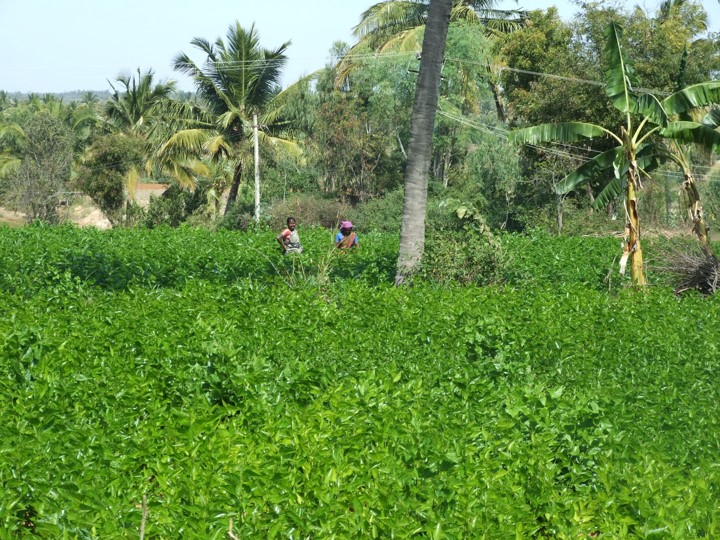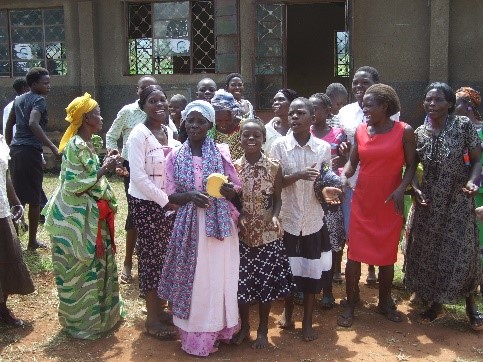I was preparing recently for a talk about Self-reliant groups around the world and I thought it was worth a short article on why they are such a good thing – especially right now.
I had the privilege of visiting groups in India 7 years ago and in Uganda 4 years ago – the latter trip along with members of our Welsh SRGs. The principles behind the groups in all three places are the same – they are primarily a friendship and support network for their members, but they create an enabling atmosphere which helps their members to make positive changes in their lives and communities. Members collectively save money, share and build skills and confidence. They decide on their own direction – some groups take community action, others move towards income generation or work, others simply build a self-sustaining group which continues to support its members for as long as they need it. The groups enable their members to take back control of their lives and to discover and move towards their aspirations, changing the economic circumstances of their members. They also have far-reaching social impacts both on their members and their families and communities, improving well-being and reducing isolation.
In India, for example, the first group we visited was in a remote rural village. The women in the group had got together and their first priority was to tackle the local council who should have been providing teachers to their school but weren’t. Having solved that issue, they persuaded the council to provide a tarmac road to their village so that goods could easily be moved in and out. Then they turned to business ideas – and between them developed a silk worm growing business. With the money made from that, they have rebuilt their homes – they showed us these proudly on our visit. On their own, those women would have struggled to be noticed in their society – but together they formed a force which has changed and enriched their whole community.


Another group, in Mumbai, was formed of former litter pickers – the lowest of the low in Indian society – but together they turned this into a business, collecting green waste officially from hotels, restaurants etc and feeding this into a small biomass unit which generates electricity which powers a café which they also run. All of them are supported from this activity – one has trained as a teacher so that she can teach the children in her slum community to give them better choices for their future.

In Uganda we met groups of women who shared the care (and the cost) of children in their village orphaned through AIDs; others who collectively saved funds and built enclosures to protect their goats. One village we visited had a very formal system for collecting and recording everyone’s savings, and then between them agreed who would be next to borrow the funds to start a small business.

The groups transform the lives of their members and the communities they live in. But this is not only creating opportunity and economic benefits for the group members – it also builds social capital – individuals connected to one another through trusting networks and common values – and it is this, according to research by many different institutions, that can transform whole economies. At the individual level, social connections affect life chances. People who grow-up in socially isolated situations or “deprived” areas are held back not merely because they are often financially and educationally deprived, but because they are poor in social ties that can give them a “hand up” *. Social networks provide advice, job leads, strategic information – it is well established that most jobs now are obtained through a social connection. There is evidence that if social capital can be created or expanded in communities, everyone benefits. There is also evidence that people with social networks are healthier with stronger immune systems and less prone to almost every disease, that they have higher levels of well-being, are more tolerant of others and (of interest to Governments) more likely to pay taxes*.
Our self-reliant groups build these connections between the members and then between groups through the network of groups which is building. The examples we saw in India showed well organized networks joining together to create opportunities for work and to improve their communities. With our partners in Scotland, Manchester and Leeds we are seeking to build a movement like the one in India where ultimately hundreds of groups are giving their members the power and ability to change their lives for themselves, and communities and economies are being transformed as a result.
#buildbackbetter
*From “Bowling Alone” by Robert Putnam
